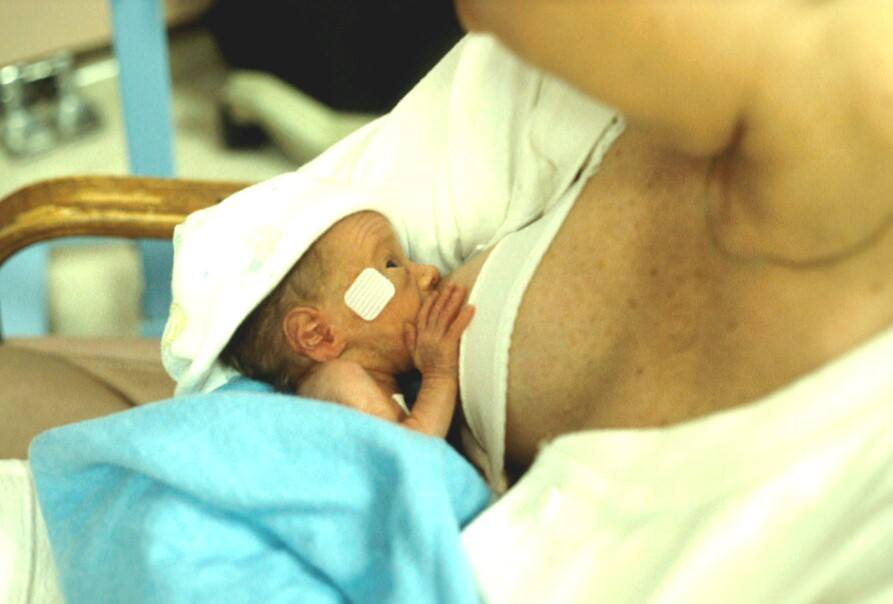
Many moms of preemies who hope to breastfeed don't get started right away. Although every case is different, this delay in attempting to latch isn't always because the little one isn't capable of breastfeeding. Instead, it's oftentimes because doctors or nurses assume they aren't able to. In order to break this blanket misconception that moms shouldn't try breastfeeding until their preemies reach a certain gestational age, one doctor shared a powerful photo that captures exactly what's possible: breastfeeding before 34 weeks' gestation.
Dr. Jack Newman is the chief pediatrician at the International Breastfeeding Centre (IBC) in Toronto and is hoping to shed some light on the truth about nursing preemies.
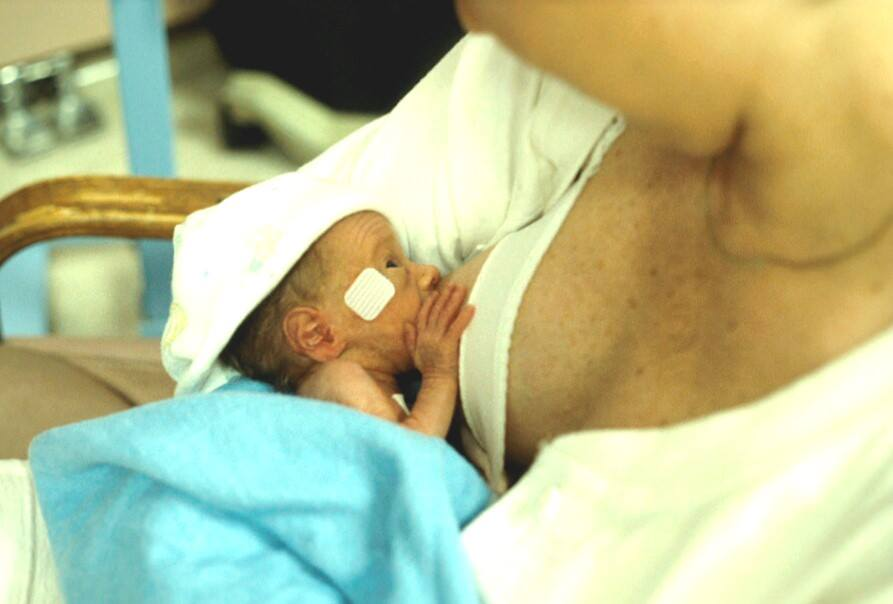
He shared a photo on Facebook that a pediatrician in San Diego gave him of a baby born at 28 weeks' gestation breastfeeding at 10 days old. "In many special care units, premature babies are not 'allowed' to go to the breast until they are 34 weeks gestation," he wrote. "This baby didn't read the book, I guess."
He explains to CafeMom that many moms are instructed not to try nursing their preemies until weeks later because research has shown that bottle-fed preemies are at risk for apneas and bradycardias. "But bottle-feeding is not breastfeeding, and breastfed babies are much less likely to stop breathing or have slow heart rates when they are younger than 34 weeks' gestation," Dr. Newman tells CafeMom.
However, that isn't the biggest reason, in his opinion, that preemie moms are kept from breastfeeding. "Most of all, [it's] because most neonatologists, pediatricians, and NICU nurses don't know the first thing about breastfeeding, not practical 'hands on' breastfeeding," he says.
More from CafeMom: Both Formula & Breast Milk Were Put to the Test — but Only 1 Wiped Out This Bacteria
According to Dr. Newman, some of the simply false breastfeeding misconceptions that people need to realize include: that babies should only be able to start trying to breastfeed at 34 weeks' gestation, that breastfeeding is tiring for babies, and that all preemies need the breast milk to be fortified. "That a 31 week gestation automatically needs 'fortification' of the milk is nonsense," he says. "Some pediatricians/neonatologists are so hopped up on fortification, that they tell mothers to fortify the milk until the baby is 10 months of age. That is absurd."
Now, other moms are sharing photos of their "rock star" breastfeeding preemies to prove it can be done.
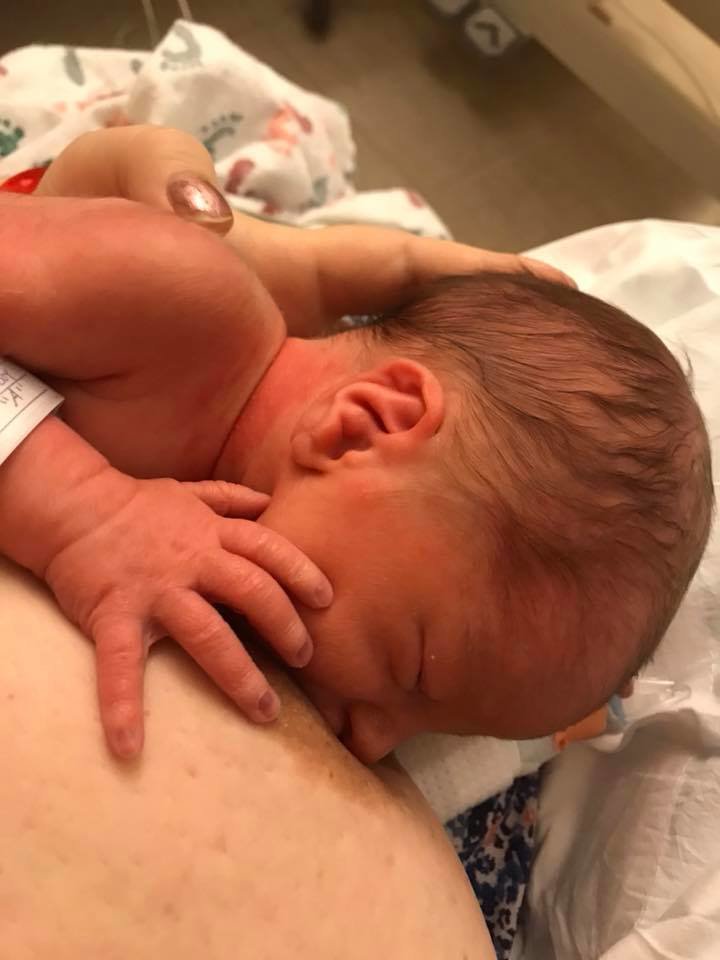
After Breastfeeding Mama Talk's Facebook page shared Dr. Newman's photo to help raise awareness, it inspired other moms to post photos of their own preemies nursing despite their early gestation age. "I just had twins at 34 weeks and they both latched at 24 hours old even though everyone assured me they 'wouldn't be able to' — they are nursing rock stars!" one mom wrote.
Dr. Newman explained that much of this hesitation to start letting a preemie breastfeed comes from outdated information that hasn't progressed with the times, because breast milk is considered "uninteresting" when compared to everything else that it takes to save a preemie's life.
"What we believed about premature babies and breastfeeding 50 years ago, well, no point in looking any further, it's all the same, doesn't change. In fact, we believed that breastmilk was 'low tech' (after all, made by women, so … must I say more?)," he wrote on the IBC website. "And then we started to find out more: that breastmilk made by the mother of a premature baby was tailor made for the needs of the premature, different than the milk of a mother of a baby born at term; we learned that breastmilk contains all sorts of very important compounds we never suspected even existed even just a few years ago …. And so, breastmilk became high tech and worthy of interest, especially by formula companies who realized the marketing potential immediately. But breastfeeding? Still 'low tech.'"
Despite what doctors told them was possible, these mamas breastfeed anyway.
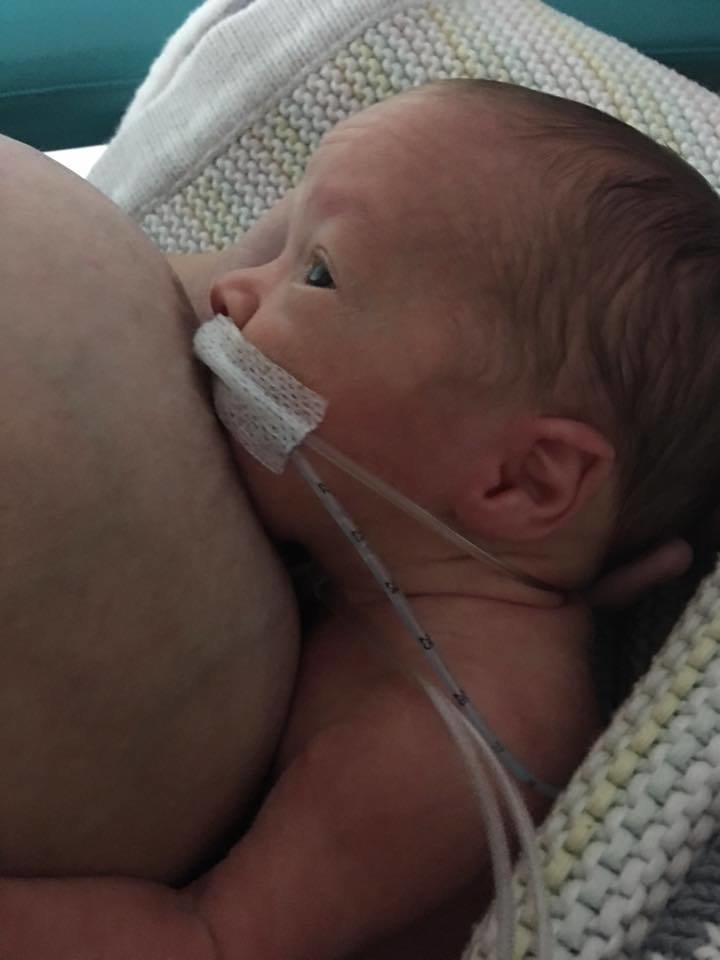
Another mom shared a photo of her baby born at 28 weeks latching for the first time at 32 weeks. "It was totally against [Special Care Baby Unit] policy as I wasn't 'allowed' to try and feed him …. but he latched and suckled," she wrote. "They didn't believe me so aspirated from his ng and sure enough there was milk in his tummy! We are still feeding at at 18 months!"
More from CafeMom: Mom Seriously Confused After Her Breast Milk Turns Bright Pink
And they are proud that they didn't let people's misinformation stop them from breastfeeding.
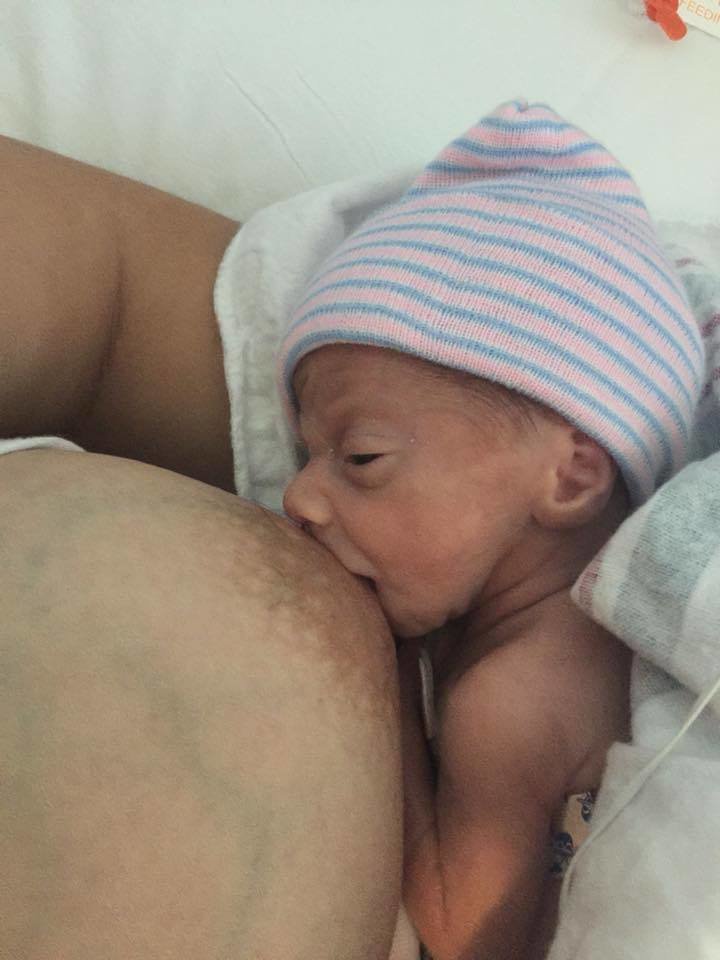
This mom explained that her 29 weeker's first latch came at 32–33 weeks gestational age. "Left the NICU at 36 weeks and continued to breastfeed for two whole years," she wrote.
Dr. Newman points to evidence from Scandinavia that supports these moms and clearly shows babies can go to the breast well before 30 weeks' gestation and as early as 27 weeks. "Not only can they go to the breast and latch on, but also, they actually can be getting milk from the breast by 28 to 30 weeks gestation, 4 or more weeks before in North America, they are even 'allowed' to go to the breast," he wrote for IBC.
However, that doesn't mean that immediate breastfeeding is possible for every preemie.
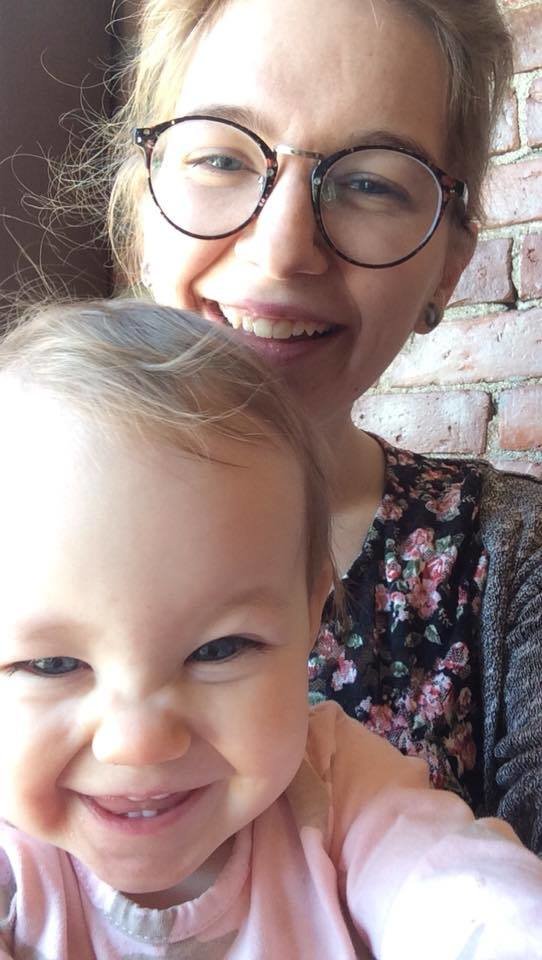
"My tiny 34 weeker could not breastfeed until 37 weeks. She would seem like she could try but she just didn't have the energy for it," one mom wrote. "Preemies may have the instincts to breastfeed but they do not have the stamina for it … I think some people don't fully understand how fragile a preemie is. If it weren't for feeding tubes, high cal formulas, and a very strict routines, many preemies would not make it."
Although it took this baby three months before she was able to exclusively breastfeed, Dr. Newman doesn't agree that it's because preemies don't have the stamina for it and hopes to correct this misunderstanding. "Unlike what many neonatologists believe, breastfeeding does not take more energy than bottle feeding and does not tire the baby out. That is an error based on the observation that babies tend to fall asleep at the breast even though they may still be hungry," he wrote for IBC. "But they don't fall asleep because they are tired or that breastfeeding takes up a lot of energy. They fall asleep because babies respond to the flow of milk from the breast. If the flow of milk is slow, the baby tends to fall asleep."




